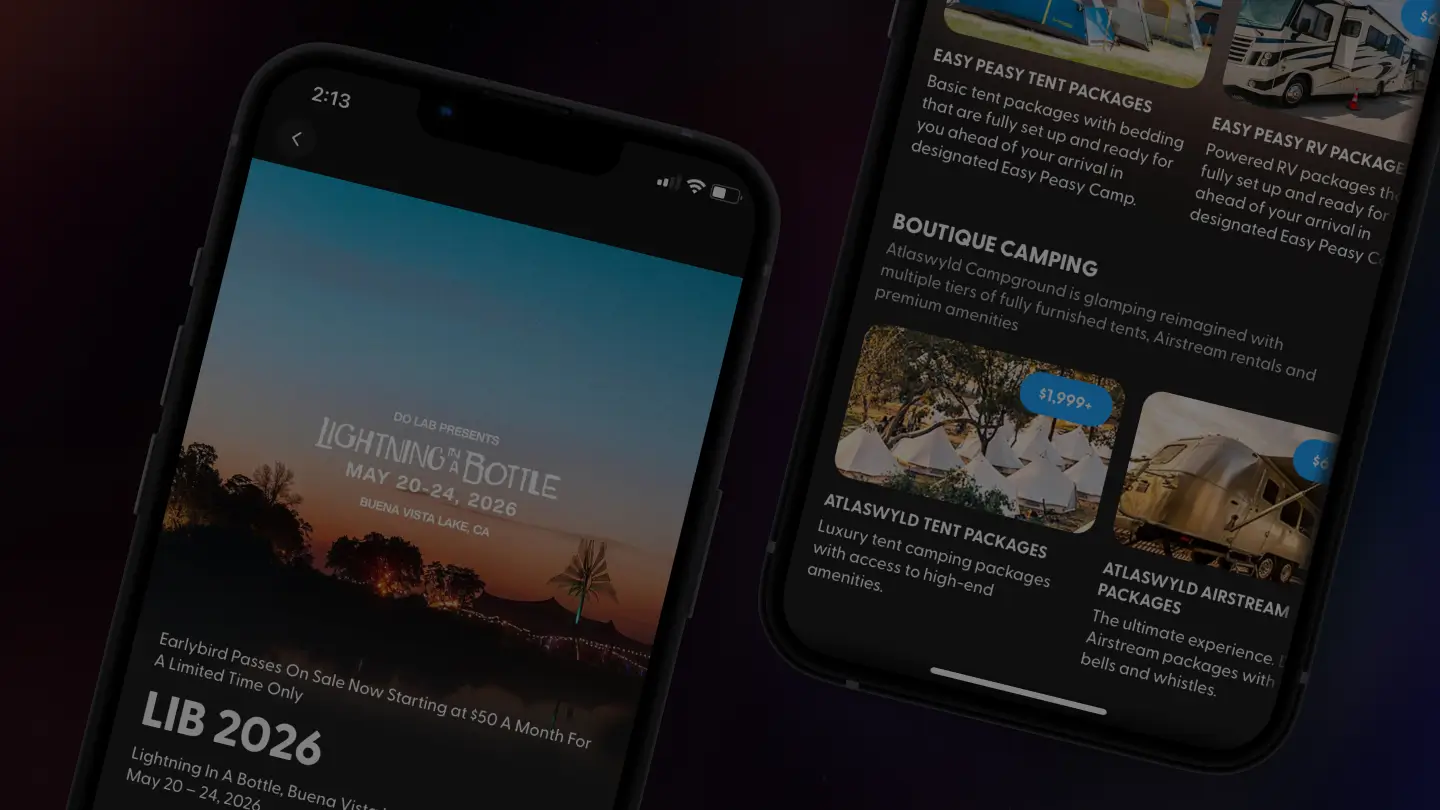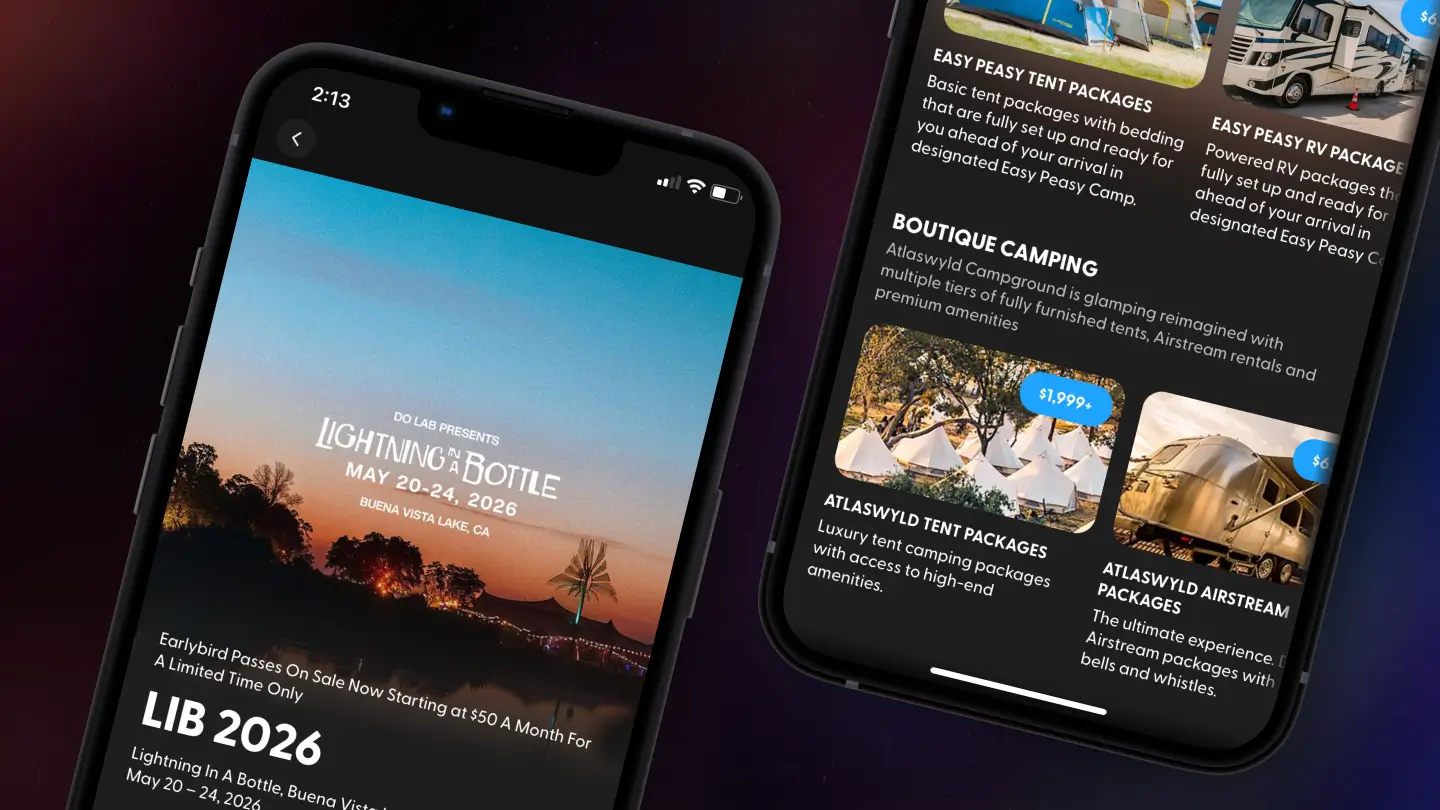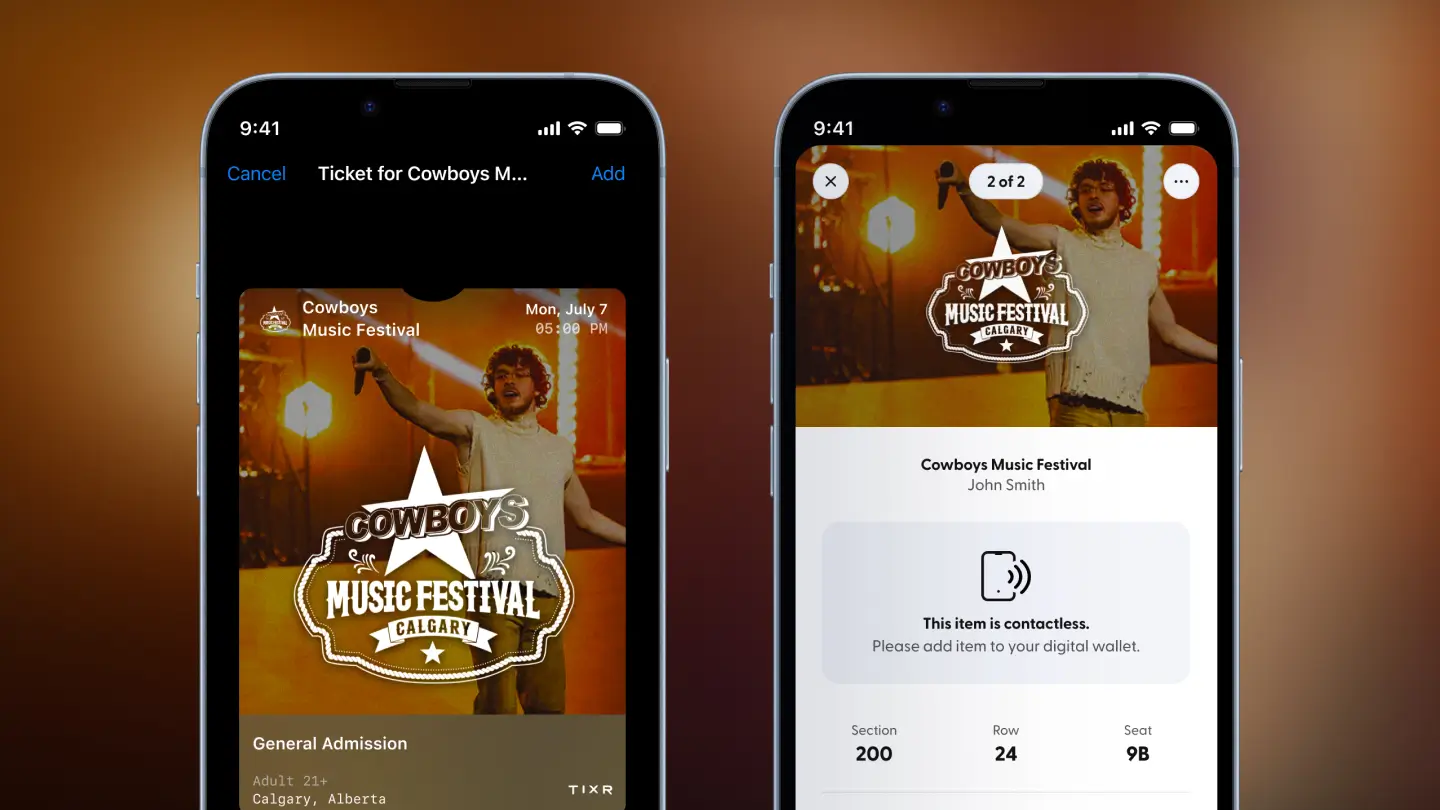
How to Choose a Ticketing Platform in 2026: A Practical Guide for Event Organizers
Choosing the right ticketing platform is one of the most strategic decisions an event organizer can make. The right partner doesn’t just sell tickets—it drives revenue, simplifies operations, and elevates the fan experience.
Here’s a framework to help you evaluate options and find a platform built for 2026 and beyond.
How to Choose a Ticketing Platform in 2026
1. Start With Your Event Type and Core Needs
Before comparing platforms, define what success looks like for your specific event(s). A 500-capacity venue likely won’t need the same infrastructure as a 50,000-person festival.
How do you determine your event’s needs? Lead with these questions:
- What’s my event size, frequency, and format (single-day, multi-day, season-long)?
- Will I be selling reserved seats, VIP options, or more than just admission tickets—like travel packages and merch?
- How many ticket types and price tiers do I need to manage?
This list of “must-haves” helps you quickly eliminate providers that can’t scale with you. While an intimate comedy club might prioritize simple seat maps and the ability for fans to upgrade their tickets, a large festival might focus more on managing hospitality offerings.
Example: Lightning in a Bottle welcomes tens of thousands of attendees each spring at Buena Vista Lake for five days of music, wellness, and art. With diverse inventory like group campsites and hotel packages, the team uses Tixr to manage flexible payment plans and high-volume demand—without compromising the fan experience.

2. Identify Your Must-Have Features
Flexible tools pay off for both organizers and fans. The right platform simplifies your workflows, gives fans more ways to engage, and drives higher sales with less manual effort.
Consider these must-have ticketing features:
- Dynamic reserved seating for complex layouts and inventory management
- Waitlisting feature to capture real demand and maximize sales
- Built-in loyalty or ambassador program to incentivize fans to refer ticket sales
- Real-time analytics and data you own
- Flexible payment options like digital wallet support, express checkout, and payment plans
- Option for add-ons and self-initiated fan upgrades
- Secure ticket delivery methods like dynamic QR codes or NFC ticketing
Example: The Acura Grand Prix of Long Beach serves more than 200,000 fans each year. Using Tixr’s dynamic seat maps, organizers offer everything from grandstand views to premium hospitality—all within a single streamlined interface.
.webp)
3. Evaluate User Experience
A great ticketing experience should feel effortless for both fans and organizers. If it feels clunky to you, it’ll frustrate your fans too.
What makes a great user experience in ticketing:
- Fast, intuitive setup tools
- Mobile-first checkout
- Branded, customizable event pages
- Easy ticket transfers, upgrades, and add-ons
Example: With its gritty visuals and brand voice, Riot Fest’s Tixr-powered ticket-buying experience looks and feels like the festival itself. That level of brand continuity—rare in older, legacy ticketing systems—helps fans instantly recognize they’re in the right place and makes the buying process feel authentic, not transactional.
.webp)
4. Prioritize Security, Fraud Prevention, and Trust
Security isn’t just a backend concern—it’s a core trust factor. Ticket fraud and resale abuse can erode credibility fast.
Key fraud protection and security to expect:
- Copy-proof ticket delivery options like rotating QR codes or NFC technology (not static PDFs)
- Anti-bot protections and post-onsale fraud checks
- Built-in, verified resale listings, closing the loop between primary and secondary
Example: Cowboys Music Festival hosts tens of thousands of fans during the Calgary Stampede. For its 2025 event, the Cowboys team adopted contactless NFC ticketing to manage 94,000 entry scans over 11 days, cutting wait times and ensuring secure, fraud-free access for fans at every gate.
Approximately 62% of consumers prefer buying event tickets online, and around 75% of concertgoers use their smartphones to access tickets, making this a smart move for the festival.

5. Evaluate the Platform’s Marketing Philosophy
Your ticketing platform should do more than process transactions—it should power your growth engine. In 2025, organizers need partners built for what’s next, not platforms still running playbooks from a decade ago.
What to look for in a ticketing platform’s marketing approach:
- Transparent data ownership and access. Full control of your audience data means you can build smarter, more personalized marketing strategies—not depend on third-party reports or black-box algorithms.
- Future-ready marketing tools. Look for integrations and capabilities that support evolving tactics, from audience segmentation to performance tracking, so you can adapt as the landscape changes.
- Aligned incentives. Avoid platforms that use your data to advertise competitors’ shows or push their own consumer marketplace.
- Actionable insights. Real-time visibility into sales and channels lets you respond faster and plan campaigns that actually move the needle.
Today, around 80% of event marketers report that events generate more leads, and 77% say data-driven decision-making is essential to their success. Relying on the same tactics as the past means staying locked in a walled garden. Owning your data means you can test, learn, and evolve on your own terms.
6. Compare Pricing and Speed to Innovate
Pricing models vary—from flat fees to per-ticket percentages—but the cheapest option might cost you more in the long run. Commitment to innovation matters. Look for flexible infrastructure that can handle more inventory, events, and commerce options as your audience and ambitions expand.
7. Assess Support and Onboarding
Even the best tools fall short without great service behind them. Prioritize providers that offer hands-on onboarding, real human support, and proactive account management.
Questions to ask when evaluating a ticketing platform’s support and onboarding:
- Do you offer 24/7 support for both fans and staff?
- What resources exist for training and setup?
- Will I have a dedicated success manager?
- How quickly can I expect response times during live events?
Recap: Choosing a Ticketing Platform
The right ticketing platform should feel like an extension of your team; transparent, flexible, and built to scale.
What are the most important features to look for in a modern ticketing platform?
Look for flexible tools that streamline your workflow and engage fans: dynamic seating, waitlists, referral rewards, real-time analytics, flexible payment options, and secure mobile ticket delivery. The right mix depends on your event type and growth goals.
How can I ensure my platform scales with my event?
Choose one built for innovation and growth—capable of handling various types of tickets and other inventory like hospitality packages or merchandise.
How can I keep my events secure and prevent ticket fraud?
Choose a platform with built-in anti-fraud tools like rotating QR codes, NFC ticketing, and verified resale. Features like these ensure legitimate access and protect both fans and organizers from bad actors.
How can I use data from my ticketing platform to sell more tickets?
Owning your audience data unlocks smarter marketing, segmentation, and retargeting. Modern platforms give you transparent access to data and integrations—helping you grow your fan base.
How should I compare pricing models between ticketing providers?
Go beyond base fees and look at long-term scalability. A flexible, innovation-driven platform may have higher upfront costs but will save money as your events grow.
Curious how Tixr can support your next event? Get in touch with us.

-min.webp)
